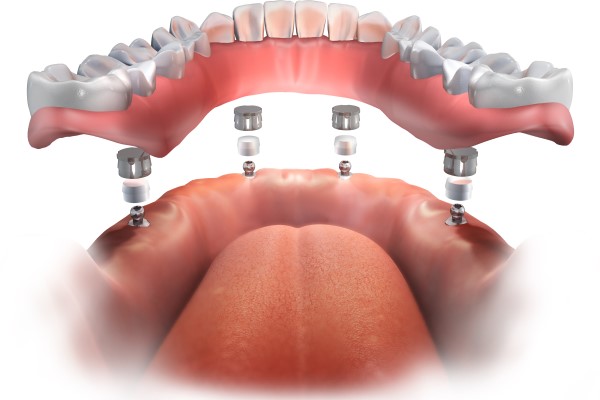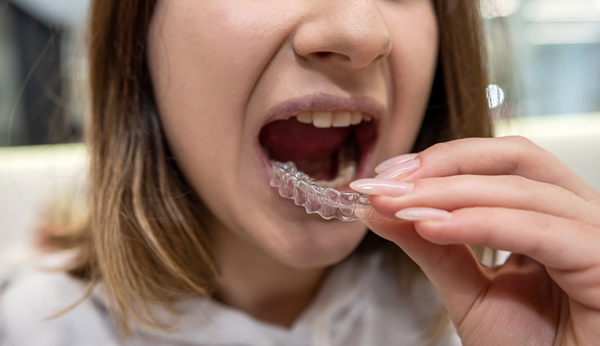Are There Any Foods I Should Avoid After a Deep Teeth Cleaning?

Deep teeth cleaning can reverse gingivitis and help bring periodontitis under control. It includes scraping tartar and plaque off teeth surfaces and their roots. The dentist also polishes the patient’s teeth roots, so it is harder for tartar to build up on them. Teeth roots being polished makes it easier for gum tissues to be attached to them.
Local anesthetics are administered during deep teeth cleaning treatments, so the patient does not experience pain as the dentist works. The treatment is often broken down into multiple treatments to minimize discomfort and to avoid having to numb the patient’s entire mouth.
Foods that should be avoided after deep teeth cleaning treatments
It is perfectly normal for patients to experience tender gums and soreness after deep cleaning treatments. Some patients also experience increased teeth sensitivity afterward. These side effects should go away within a few days, and they can be managed with over-the-counter painkillers.
Eating certain foods can irritate a patient’s tender gums and lead to increased discomfort. It can also slow down the healing process. Foods patients that who have just completed deep cleanings should avoid include the following:
Foods that might get stuck in gum tissues: Foods that have small bits that can get stuck inside a person’s gum tissues should be avoided after root scaling and planing. Examples of such foods include nuts, popcorn, chocolate, and dried fruits. Getting food particles in the gums leads to irritation, which increases the discomfort experienced by the patient.
Acidic foods: These types of foods can be harsh on gums that have already been tenderized by deep cleaning. Foods like pickles, tomatoes, and citrus fruits are highly acidic, and so are beverages like red wine and fruit juices.
Avoid foods that require large bites: Patients should avoid any foods that force them to open their mouths fully to get a bite. Such foods put a great deal of stress on the jaw, and they require more force to chew. It is better not to overstress tender teeth and gum tissues that are recovering from root scaling and planing.
Stay away from spicy foods: These foods can be tough to handle even when gum tissues are not irritated. Trying to consume spicy foods while gum tissues are recovering from deep cleaning can lead to significant pain and discomfort. It can also lengthen the recovery period.
Foods that are safe to eat
Dentists recommend restricting your diet to bland foods that are easy to chew and swallow for the first few days after root scaling and planing. Foods like pasta, mashed potatoes, and eggs should not aggravate tender gum tissues. Acidic beverages like citrus juices should be switched out with water or milk during this time.
Deep cleaning protects your teeth against tooth decay and gum disease
Removing plaque and tartar deposits from teeth surfaces can help protect your teeth from two common oral issues. Give us a call or visit our Houston clinic to set up an appointment with our dentist.
Request an appointment here: https://www.lastingimpressionsdentalgroup.com or call Lasting Impressions Dental Group at (832) 784-8212 for an appointment in our Houston office.
Check out what others are saying about our services on Yelp: Deep Teeth Cleaning in Houston, TX.
Recent Posts
A smile makeover is a great way to improve the appearance and function of the entire mouth. One of the most popular smile makeover treatment options is a procedure called All-on-4®. Through an All-on-4® procedure, patients can expect to have a transformed smile, as well as an improved bite, thus making eating, speaking and smiling easier.…
Considering Invisalign®? Read on to learn more about this teeth-straightening option. Many individuals who desire to straighten their teeth and fix their smile's spacing problems can now opt for Invisalign®. Traditional metal braces used to be the only choice for orthodontic treatment, but many people struggled with them due to their appearance. Invisalign uses a…
An implant crown can closely match the appearance of a natural tooth and can be essentially indistinguishable from adjacent natural teeth. This review discusses what an implant crown is and how a dentist can ensure that your implant crown looks as natural as possible.One of the main reasons that patients seek implant crown treatment is…
Orthodontics requires patience on the part of the wearer. They work their magic at a slow, steady pace, realigning the teeth and jaw to create the patient's desired smile. Once the braces come off or the patient completes their clear aligner treatment, a retainer becomes a new addition to a patient's daily routine. Here is…


